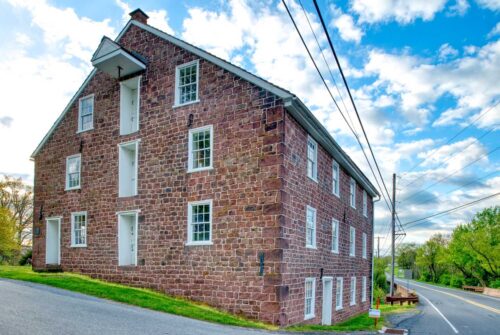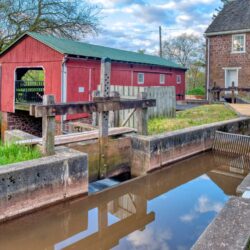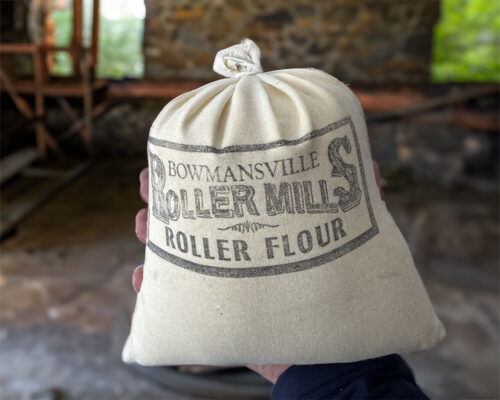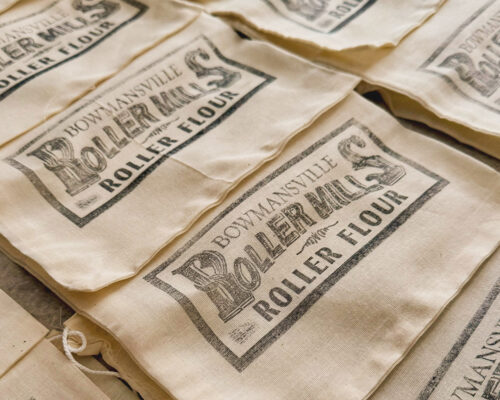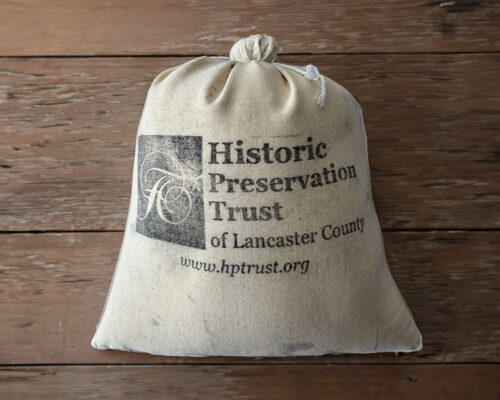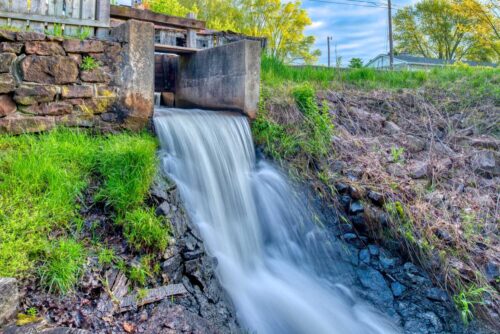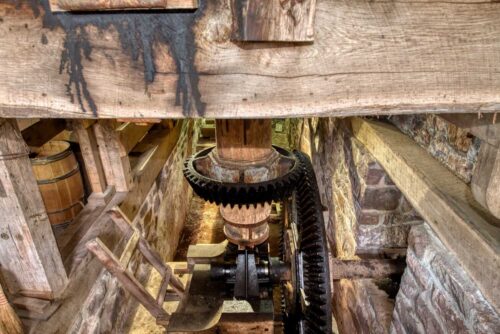Thank You to all who attended the Bowmansville Roller Mill Open House
This past Saturday, April 27, 2024, was a remarkable day for the Historic Preservation Trust of Lancaster County as we hosted an open house at the Bowmansville Roller Mill. With several hundred attendees from across southcentral Pennsylvania, the event was a resounding success, bringing together community members and history enthusiasts to celebrate our rich heritage.
- Brian M. Kutner, Millville, NJ
- Brian M. Kutner, Millville, NJ
We were privileged to have two millers from George Washington’s gristmill at Mount Vernon operating the mill throughout the day. Their expert handling of the historic machinery provided a rare and fascinating glimpse into the past, much to the delight of our visitors. The sawmill demonstrations were an added bonus, offering everyone a chance to see this integral part of our agricultural history in action.
A special thanks goes to photographer Brian Kutner, who captured the tranquil beauty of the mill in the morning before the crowds arrived. His stunning photographs have beautifully preserved the spirit of the day, and we are thrilled to share these images with you.
- Brian M. Kutner, Millville, NJ
- Brian M. Kutner, Millville, NJ
- Brian M. Kutner, Millville, NJ
We are also grateful to everyone who left with a piece of history in their hands—a bag of freshly ground cornmeal adorned with the mill’s logo, a memento of their visit.
We extend our heartfelt appreciation to everyone who joined us and made this event memorable. Your enthusiasm and support for preserving our local heritage are what make events like these possible. We hope to see you all again next year for another day of history, community, and fun at the Bowmansville Roller Mill.
Thank you once again for being a part of this historic day! We to see you next year.
Discovering the Historical Gem of Lancaster County: The Bowmansville Roller Mill
For those unfamiliar, the Bowmansville Roller Mill is a treasured landmark in northern Lancaster County, Brecknock Township. It stands as a testament to the rich industrial heritage of the region. This beautifully preserved mill is not only a significant historical landmark but also one of the only two mills in Lancaster County that remain in operating condition, offering a rare glimpse into the past.
- Brian M. Kutner, Millville, NJ
- Brian M. Kutner, Millville, NJ
A Rich History Rooted in the Early American Period
The origins of the Bowmansville Roller Mill date back to 1737, nearly four decades before the American Revolution. Christian Good, the original builder, constructed a log mill and dwelling along Muddy Creek, which also served as a Mennonite Meetinghouse. Ownership transitioned through the Good family over the years, with each generation leaving its mark on the property. By the late 18th century, a second mill built by John Good replaced the original, setting the foundation for future developments.
Transition Through Time
In the mid-19th century, the mill saw significant changes under new owners Henry Von Neida and Samuel Grill. They constructed the three-story stone mill in 1854, the very structure that visitors admire today. After several ownership changes and technological upgrades, including the shift from stones to rollers in 1888, the mill’s operation reflected the evolving industrial landscape of the era.
Tragedy struck in 1912 when John Von Neida, the mill operator at the time, tragically died at the mill. The mill continued to operate under his son until around 1945, when changing economic conditions led to its closure.
Restoration and Preservation
Lying dormant for over two decades, the mill’s fate took a positive turn in 1967 when Stewart Keen purchased and restored it to operational state. His efforts ensured that the Bowmansville Roller Mill would not only survive but also serve as a historical education tool for future generations. In recognition of its historical and architectural significance, the mill was placed on the National Register of Historic Places in 1989.
Today, under the care of Ron and Nancy Funk, the Bowmansville Roller Mill continues to captivate visitors with its historical charm and operational prowess. It stands as the last remaining example of a combination grist and sawmill in the region, making it a unique educational resource and a must-visit for anyone interested in the industrial past of Lancaster County.






